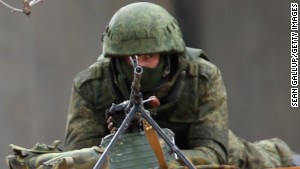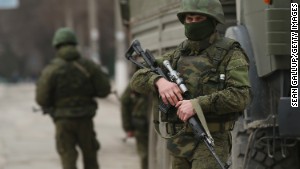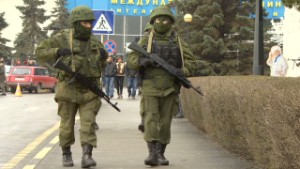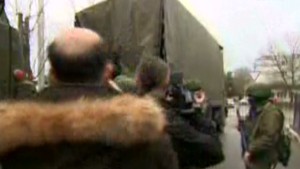myosotis
Proud Member
- Joined
- Aug 27, 2009
- Messages
- 4,224
- Points
- 48
I was interested to see these photographs of protestors in Ukraine holding up mirrors to the police. I had not seen this done before...
(The protest background is described in the article)
6 Jan 14
http://[URL=https://imageshack.com/i/j7xhnuj] [/URL]
[/URL]
At noon, demonstrators lined the streets of central Kyiv for 30 minutes to hold up mirrors in front of police in commemoration of the Nov. 30 violent dispersal of protesting students from Independence Square. All photos by Kostyantyn Chernichkin

15 December 13
The European Union puts on hold work with Ukraine on a trade and cooperation agreement as large rival protest rallies mobilise in Kiev.

6 Jan 14
Ukraine: mirrors in Kiev but what next for protesters?
Ukrainians have been taking to the streets since November despite the bitter cold, protesting against what they see as their government's overly cosy relationship with Russia.
The pro-EU protesters began demonstrating last year, and after a break during the Ukrainian orthodox Christmas, 50,000 opponents of Ukraine's President Viktor Yanukovich rallied on Independence Square in Kiev on Sunday.
The demonstration came a day after baton-wielding riot police tried to disperse protesters outside a Kiev courthouse, sparking clashes in which at least ten people were injured, including former Ukrainian Interior Minister Yuri Lutsenko.
Mr Lutsenko is a minister in the government of jailed opposition leader Yulia Tymoshenko - a symbol of Ukraine's Orange Revolution.
The ban, decided on 6 January but only issued now, runs from 8 January to 8 March and defines a mass protest as "an event using loudspeakers.... posters, putting up of tents, stages or curtains."
The court did not explain the delay in publishing the ban but opposition activists saw it as the sign of a tougher line to come.
We believe that it is a fact of preparation for... repressions against peaceful activists across the country," said a statement from the opposition party UDAR led by former heavyweight boxing champion Vitaly Klitschko.
In early December, a violent crackdown by riot police of a student demonstration in Independence Square accelerated protests across the former Soviet republic.
However, since the huge Sunday rally, numbers appear to have dwindled. On Tuesday, some just 200 integration activists picketed the roadway outside of Mr Yanukovich's residence in Mezhyhirya.
Yanukovich's regime will not stop at anything.
Vitaly Klitschko
In another protest, a group of about 200 people marched down a central Kiev street, pushing through police lines and scuffling with officers along the route.
Activists also urged politicians to boycott the Inter TV channel over what they say is biased coverage of protests in Kiev.
EU sanctions
But some emblematic images from the protests, such as the one above, have started to take off on social media - and demonstrators have vowed to fight on.
The viral images show demonstrators holding up mirrors in front of riot police in Kiev. Protesters say they are holding up the mirrors to force police to look themselves in the eye and reflect upon their actions.
The protests began following Mr Yanukovich's decision to abandon a free trade agreement with Europe in favour of closer cooperation with Russia, but opposition leaders have widened their aims since then.
http://www.channel4.com/news/ukraine-protests-smoke-and-mirrors-in-kiev-eu-russia
(The protest background is described in the article)
6 Jan 14
http://[URL=https://imageshack.com/i/j7xhnuj]
 [/URL]
[/URL]At noon, demonstrators lined the streets of central Kyiv for 30 minutes to hold up mirrors in front of police in commemoration of the Nov. 30 violent dispersal of protesting students from Independence Square. All photos by Kostyantyn Chernichkin

15 December 13
The European Union puts on hold work with Ukraine on a trade and cooperation agreement as large rival protest rallies mobilise in Kiev.

6 Jan 14
Ukraine: mirrors in Kiev but what next for protesters?
Ukrainians have been taking to the streets since November despite the bitter cold, protesting against what they see as their government's overly cosy relationship with Russia.
The pro-EU protesters began demonstrating last year, and after a break during the Ukrainian orthodox Christmas, 50,000 opponents of Ukraine's President Viktor Yanukovich rallied on Independence Square in Kiev on Sunday.
The demonstration came a day after baton-wielding riot police tried to disperse protesters outside a Kiev courthouse, sparking clashes in which at least ten people were injured, including former Ukrainian Interior Minister Yuri Lutsenko.
Mr Lutsenko is a minister in the government of jailed opposition leader Yulia Tymoshenko - a symbol of Ukraine's Orange Revolution.
The ban, decided on 6 January but only issued now, runs from 8 January to 8 March and defines a mass protest as "an event using loudspeakers.... posters, putting up of tents, stages or curtains."
The court did not explain the delay in publishing the ban but opposition activists saw it as the sign of a tougher line to come.
We believe that it is a fact of preparation for... repressions against peaceful activists across the country," said a statement from the opposition party UDAR led by former heavyweight boxing champion Vitaly Klitschko.
In early December, a violent crackdown by riot police of a student demonstration in Independence Square accelerated protests across the former Soviet republic.
However, since the huge Sunday rally, numbers appear to have dwindled. On Tuesday, some just 200 integration activists picketed the roadway outside of Mr Yanukovich's residence in Mezhyhirya.
Yanukovich's regime will not stop at anything.
Vitaly Klitschko
In another protest, a group of about 200 people marched down a central Kiev street, pushing through police lines and scuffling with officers along the route.
Activists also urged politicians to boycott the Inter TV channel over what they say is biased coverage of protests in Kiev.
EU sanctions
But some emblematic images from the protests, such as the one above, have started to take off on social media - and demonstrators have vowed to fight on.
The viral images show demonstrators holding up mirrors in front of riot police in Kiev. Protesters say they are holding up the mirrors to force police to look themselves in the eye and reflect upon their actions.
The protests began following Mr Yanukovich's decision to abandon a free trade agreement with Europe in favour of closer cooperation with Russia, but opposition leaders have widened their aims since then.
http://www.channel4.com/news/ukraine-protests-smoke-and-mirrors-in-kiev-eu-russia
Last edited:




